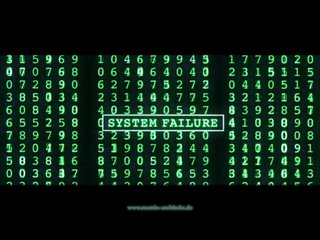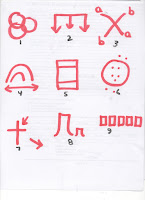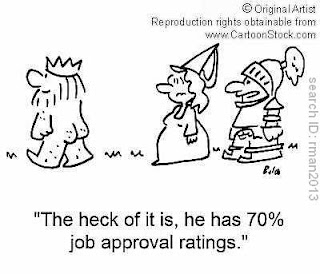oo
QUICK word association:
what come to mind when I say the following words?
- apocalyptic
- city
- 666
- committee
- heaven
- mark of the beast
- greatness
- binding and loosing
- prophecy
- end times
- economic
- Philemon
---------------
Tonight, we'll start with
-Matthew 18, then
-the Bueggeman book you just finished reading,
then pick up tonight's biblical theme, and then conclude with
-Three Worlds symbols and
- an intro to Philemon
Finishing up last week, Matthew 18, which we didn't have time for:
Tell a few stories about your "One Great Person" worksheets and videos.
Two of my greats are Wayne from Delano and Dack from "Dallas" ! Take home lesson: don't betray a friend for (literally) a million dollars!
(story here)
Last week's topic is "Greatness, Leadership, Power."
Two of my greats are Wayne from Delano and Dack from "Dallas" ! Take home lesson: don't betray a friend for (literally) a million dollars!
(story here)
Last week's topic is "Greatness, Leadership, Power."
The symbol for last week suggests that a biblical model/worldview often looks like the CEO/top-down model turned downside up..
Jesus came to serve.
The last shall be first.
That's who is great in the Kingdom economy:
The one who serves
The one who has splagchizomai..
Jesus said in it yet another chiasm:
Jesus came to serve.
The last shall be first.
That's who is great in the Kingdom economy:
The one who serves
The one who has splagchizomai..
Jesus said in it yet another chiasm:
But those who exalt themselves will be humbled,
and those who humble themselves will be exalted
(Matt 23:12)
Tonight we meet a couple of great contemporary servant-leaders:
like this little sphepherdette/llamaherder I filmed in Peru. She was leading a huge flock...just one tiny girl, with a sheepdog...and amazingly, leading effectively from _________________!" (See from 1:30 to the end, and freeze frame 2:05-2:09 if you didn't spot her). If you didn't fill in the blank, see Isaiah 30:21. What a great leader!)
(rest of that story here)
and like this guy with "splangizomai" glasses:
Then of course, we'll look at = Jesus' approach to greatness, leadership, and power .
Tonight we meet a couple of great contemporary servant-leaders:
like this little sphepherdette/llamaherder I filmed in Peru. She was leading a huge flock...just one tiny girl, with a sheepdog...and amazingly, leading effectively from _________________!" (See from 1:30 to the end, and freeze frame 2:05-2:09 if you didn't spot her). If you didn't fill in the blank, see Isaiah 30:21. What a great leader!)
(rest of that story here)
and like this guy with "splangizomai" glasses:
Then of course, we'll look at = Jesus' approach to greatness, leadership, and power .
As we study, apply as many literary world symbols as you can
A video on that chapter featuring Keltic Ken:
Of LITERARY WORLD note:
- -This is the 4th of 5 teaching blocks in a parallelism. Importance?
- In a chiasm, this block is related to the second. How so?
- -Do you catch any chiasm? (see below)
- -the 2 or 3 language hyprelinks to Deuteronomy 17:, 6, 15
- -There is a hyprelinked account in Matthew 16, there only Peter receives power to bind and loose, here all the disciples do
- -The parable hyperlinks to Luke 15, but with a different context/TTP
- Structurally, the last section of chapter 17 is connected
- Two inclusios place thios section in the middle of a unit about taxes/rights and children. Implications---

Of Historical World note:
- What did you learn about a millstone from tonight's video clip?:
- Rob Bell's discussion of the Bible and binding and loosing
read, wrestled and reckoned with..
It's the "YOKE" chapter of "Velvet Elvis"..
Thanks to Zondervan, a free online read, pages 40-69
here.
Thanks to Zondervan, a free online read, pages 40-69
here.
---
Page 22 of Syllabus,Matthew 18 Outline
(by Greg Camp/Laura Roberts):
1 Question #1: Who is Greatest?
2-17 Responses (each are counter proposals):
2-10 Response #1: Children
2-4 Counter Proposal: Accept children
5-9 Threat: If cause scandal
10 Show of force: Angels protect
12-14 Response #2: Sheep
12-14 Counter Proposal: Search for the 1 of 100 who is lost
15-17 Response #3: Brother who sins (counter proposal)
15a Hypothetical situation: If sin
15-17 Answer: Attempt to get brother to be reconciled
17b If fail: Put him out and start over
18-20 Statement: What you bind or loose
21-22 Question #2: How far do we go in forgiveness?
23-35 Response #1: Parable of the forgiving king/unforgiving servant
----------------Read verses 15-17 and then ask yourself:
"What did it mean in their historical world to treat people like"tax collectors and sinners?"
"What did it mean in their historical world to treat people like"tax collectors and sinners?"
Two answers
1)Don't allow them in your bounded set.
2)How did Jesus treat tax collectors and sinners? In a centered set way. Tony Jones writes:
but because anyone, including Trucker Frank, can speak freely in this church, my seminary-trained eyes were opened to find a truth in the Bible that had previously eluded me.”...That truth emerged in a discussion of Matthew 18's "treat the unrepentant brother like a tax collector or sinner.":"And how did Jesus treat tax collectors and pagans?" Frank asked aloud, pausing, "as of for a punchline he'd been waiting all his life to deliver,"....., "He welcomed them!""
More on Trucker Frank here; he can interrupt my sermons anytime..
NOTE: don't forget how bug CHIASMS can get.. see Genesis 6:
----------------------------------------------------------------
----------------------------------------------------------------
Click links on "literary world" discussion of the passage:
-------------------
We might see the whole unit as a chiasm with inclusio. See below (copied from here):
Jesus foretells His death: Matthew 17:22-23
A. Jesus speaks of giving freely/sacrificing self: Matthew 17:24-27
B. Little children are the essence of the kingdom: Matthew 18:1-7
C. Sacrifice the body for the sake of the kingdom: Matthew 18:8-9
D. Do not despise what God values: Matthew 18:10-14
E. Entreating a brother about sin or offense: Matthew 18:15-17
>>F.Agreement between Heaven and Earth: Matthew 18:18-20
E. Entreating a brother about sin or offense: Matthew 18:21-35
D. Do not despise what God values: Matthew 19:1-9
C. Sacrifice the body for the sake of the kingdom: Matthew 19:10-12
B. Little children are the essence of the kingdom: Matthew 19:13-15
A. Jesus speaks of giving freely/sacrificing self: Matthew 19:16-20:16
Jesus foretells His death: Matthew 20:17-19
--
---
--
The Brueggeman book focuses on Isaiah and contemporary urban problems (Much of the book is a free online read here, and here is an audio of a related sermon Bruegemann preached at Mars Hill Church (pastored by Rob Bell)
- Is the city good, evil, or neutral?
- Think of TV shows, songs, movies, locations with the word "city"? Themes?
- What is a "principality"? (in geography.politics? in the Bible?) A "polis"? "Empire"? Is the city a bounded or centered set? See this short video: :
 |
| story behind the pic |
- What was the first city in the Bible?
- Where do believers wind up, in the Book of Revelation?
- Does the city cast its shadow (influence) on us, or vice versa?
Interesting links:
- A Biblical Theology of the City : Tim Keller
- Article on "Cities" from New Bible Dictionary
- Cities in the Bible (atheist website!)
- Cities in the Bible (Wiki)
- Cities of Refuge
- Cities of Refuge: Sermon
- Excerpt from Randy White; "Why Focus on the City?
- Free Book Read: "The Meaning of the City" by Ellul
- Free Online Read (partial): "A Theology as Big as the City" by Bakke
- Fresno: something to do with money
- From the Village to the City (A Grammar for the Languages We Are) by FPU's Delbert L. Wiens
- Jerusalem: The Ideal City of the Bible
- What is a City?
- World's Largest Cities
>>Did you catch the inclusio Brueggeman highlighted in the book of Isaiah (pp 33-34 and77- 78)? Implications?
 >>"The city is organized to abandon...so that people do not count..the city becomes an empty form, filled with nonpersons, long since forsaken" (p, 7). Is this your experience? Check this hilarious/tragic example of how any city/system becomes uncaring:
>>"The city is organized to abandon...so that people do not count..the city becomes an empty form, filled with nonpersons, long since forsaken" (p, 7). Is this your experience? Check this hilarious/tragic example of how any city/system becomes uncaring:Sex and Drugs in Church: Peterson on Why the System Can't Care
--
NEXT: To intro tonight's biblical theme,we'll we'll do is watch this video, with no introduction, and no context:
--
Questions:
How did that video subvert your expectations re: what the Book of Revelation is about?
Why did the speaker wait until halfway through the serrmon to even reveal what his Scripture was?
What do you learn here about subversion of empire?
In light of our discussion on Bruggeman book earlier tonight, what do you learn about cities?
TONIGHT'S BIBLICAL THEME: BUILDING COMMUNITAS THROUGH
- APOCALYPTIC,
- PROPHECY,
- SUBVERSION OF EMPIRE
- ELEVATED RIGHTEOUSNESS
- SINGULAR PLURALS
Apocalyptic:
Prophecy:
Prophecy:
Wayne Grudem’s definition:
prophecy is the reception and subsequent transmission of spontaneous, divinely originating revelation...often, WHAT IS GOD SAYING SPONTANEOUSLY IN THE MOMENT..
It is helpful to think of prophecy as:
a).not just
fore-telling (predicting the future)
but
forth-telling (telling forth truth)
b)often having multiple applications and fulfillments, to different "contemporary worlds" and across time.
We'll used this diagram to illustrate:
-Who wasI mmanuel?
-Who does "out of Egypt, I have called my son" refer to ?
Subversion of empire:
How are all these videos examples of subversion?
666:
Nero Caesar in Aramaic is spelled NRON KSR. Aramaic letters have numeral values like Roman numerals.
N= 50
R=200
O= 6
N= 50
K=100
S= 60
R=200
.....=666 link:http://www.abovetopsecret.com/forum/thread100465/pg1
N= 50
R=200
O= 6
N= 50
K=100
S= 60
R=200
.....=666 link:http://www.abovetopsecret.com/forum/thread100465/pg1
--
The Greek spelling, "Nerōn Kaisar", transliterates into Aramaic as "נרון קסר", nrwn qsr. The Aramaic spelling is attested in a scroll from Murabba'at dated to "the second year of emperor Nero." [34] Adding the corresponding values yields 666, as shown:
| Resh (ר) | Samech (ס) | Qof (ק) | Noon (נ) | Vav (ו) | Resh (ר) | Noon (נ) | Sum | |
| 200 | 60 | 100 | 50 | 6 | 200 | 50 | 666 | Link |
--
ELEVATED RIGHTEOUSNESS
It's an "elevated righteousness" that seems to be called for. Your text (p, 269) uses the phrase "higher righteousness," but I prefer the "elevated phrase" because
a)The U2 connection (:
b)"elevation" is a classic Jewish form of prayer"
...For the chasid, prayer is not something one recites, it is rather an exercise that one performs, or an
experience that one enters into.... There is no room for inhibition...singing and dancing are essential means by which ...he expresses his emotional cleaving to God….but
that desire for God has to be so overwhelming that any extraneous thoughts are excluded…If distractions are erotic in nature…and (one) faces up to the predominance of the sexual urge at both conscious and subconscious levels, and
its capacity to intrude even during prayer...then he has learned to take measures…Chasidism dealt with this by introducing the doctrine of the "elevation of strange
thoughts." This...technique not of sublimation, but of thought conversion, whereby the beauty or desirability of the woman is latched upon and used not as a sexual but rather as a mental and spiritual stimulus.... taught to "elevate" these thoughts by substituting the beauty of God for the
physical beauty that is currently bewitching us. (The pray-er) has learned to immediately contrast the pale reflection of beauty that humans are endowed with, on the one hand, and the supreme Divine source of authentic and enduring beauty,
on the other…-"Blessed are You: A Comprehensive Guide to Jewish Prayer," by Rabbi Jeffrey Cohen, copyright 1993. , link
More on U2 and Elevation here
----
But it can get tricky living the elevated life, building fences around Law...If not prayerful/careful, one can become legalistic...Ever noticed the CHIASM Jesus uses to comment on the litmus test for law-keeping, the SABBATH? "The Sabbath was made for humans,
not humans for the Sabbath" (Mark 2:27)...

I'll never forget taking the elevator from our towering Jerusalem hotel room down to the lobby for breakfast one Saturday.
Not only could I not push the lobby button,
but the elevator stopped automatically on every floor.
I wondered if I would make it down for lunch.
When I ordered, I realized that the waitress was not writing down any orders;
even the most complicated ones.
Writing was "work" on the sabbath,
as was pushing elevator buttons.
Thus, the "sabbath elevator"
-------------------------------------------
Let's return (in an iclusio) to these word associations from the top of class. How do you associate/define these words differently now?
- apocalyptic
- city
- 666
- committee
- heaven
- mark of the beast
- greatness
- binding and loosing
- prophecy
- end times
- economic
- Philemon
1)Philemon paper:
a)Remember: No more homework outside of class (until the paper is due) as the two Philemon worksheets we'll do in class next time. This gives you time to read and reread Philemon.
b)Huge help: See the new tab at top:
c)See the new tab at top:
--
2)Quiz next week (all answers on Week 1 post):



















No comments:
Post a Comment